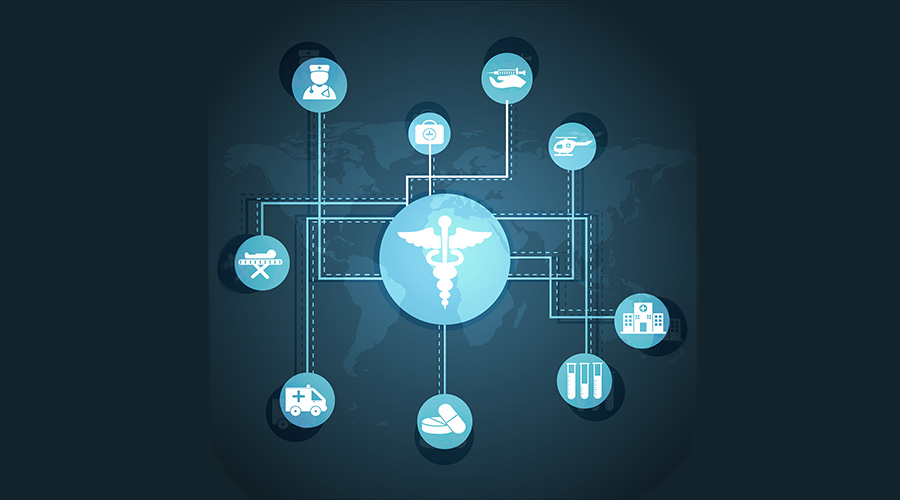
The application of Blockchain technology has gone far beyond its use in bitcoin and cryptocurrencies. Given its characteristics and enormous advantages, its technological innovation is generating a huge impact in many industries. Along with storing and protecting data, it allows the transfer of ownership of units using an encryption system without requiring the control of the government or a central bank. So, here comes the question is how blockchain is organizing the healthcare sector.
Currently, most medical institutions use outdated and inconvenient methods for handling medical data. These include different record systems, such as prescription drug data, applied treatment, health insurance information, and patient medical data. The inappropriate handling of these data affects both the treatment of the patient and the speed of the treatment. These practices influence transparency between service providers, medical facilities, insurance, control bodies, and patients. And, this results in timely misinformation, serious and even fatal medical errors, fraud, and corruption. However, the advances of blockchain have brought numerous benefits to the medical sector
Let’s take a broader look at this!
Advantages posed by Blockchain in the healthcare
Management of medical data
Imagine a Block chain-based system that allows secure access to patient records in one go. The patient details will be recorded and encrypted, and you can decide who you give access to and for what. For instance, imagine that you have suffered a car accident and you had to go to the hospital. The patient information will be derived from the medical tests, and the status can be used for other purposes such as insurance payments or evidence in a trial without the need to request the information from the hospital, make copies, and send them to the different parties. You could also give access to clinical research anonymously, and this would greatly benefit research on specific diseases.
Recruitment for clinical trials
Another use of blockchain in the medical world is to improve the quality and efficiency of clinical trials. Clinical trial recruiters could use medical data stored on blockchains to identify patients who might benefit from the drugs being tested. Such a recruiting system could dramatically improve enrollment in clinical trials, as many patients are not informed about drug trials that may affect them and never really have the opportunity to participate. While performing the tests, blockchains could also be used to guarantee the integrity of the data collected.
Drug traceability
The problem of counterfeit medicines is one of the biggest obstacles in the health sector. With around 10 to 30% of counterfeit drugs, it is time for health institutes to fix it forever. Not only do they lose millions of dollars in revenue, but they also affect patients. At the moment, the amount of counterfeit drugs generates 200 billion dollars a year.
Thus, Blockchain can solve all of these problems by providing drug safety and traceability. As the Blockchain works by adding transactions to the block, the transactions are immutable and also have a timestamp for later verification. So, if the entire supply chain is driven by the blockchain, all problems can be fixed.
Conclusion
Blockchain is a relatively new technology that is in its early stages. It is a tremendous success in the form of Bitcoin and has positively raised the bar of expectations. In the coming years, we will be able to see Blockchain organizing the healthcare industry and, with that, there will be a boost in the development of healthcare apps using blockchain technology.
However, it is also true that implementing blockchain in healthcare may not be as easy as it may face some serious challenges. Finally, one thing is certain: Blockchain will make the healthcare industry faster and safer than ever.
